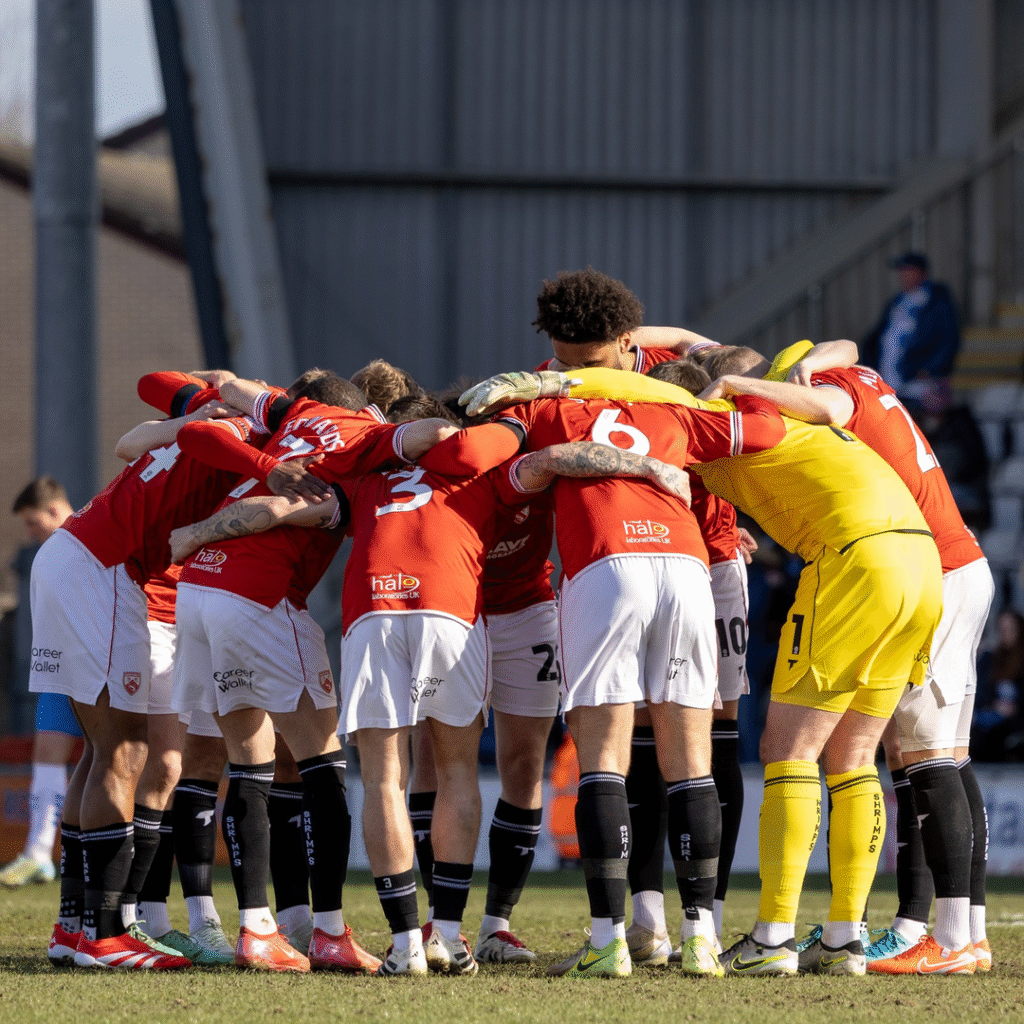For decades, Morecambe FC has been a proud pillar of the Lancashire coast, boasting a rich footballing heritage and strong community roots. The club, affectionately known as the Shrimps, has captured the heart of its town and made national headlines for both its gritty achievements and more recently its spiralling off-field crisis. As the 2024–25 football season unfolds, Morecambe FC finds itself embroiled in one of the most challenging periods in its history, raising urgent questions about its future and the sustainability of lower-league football in the UK.
The Rapid Descent: How Did We Get Here?
Only a few years ago, Morecambe FC was riding high after clinching their first-ever promotion to League One in 2021, a remarkable feat for a club that had long punched above its weight. Under the stewardship of manager Derek Adams, fans dared to dream as the team battled some of England’s oldest and most established sides. Yet, despite flashes of courage on the pitch, mounting issues behind the scenes threatened to derail this progress.
The club’s troubles began to surface when owners Bond Group Investments put Morecambe up for sale in September 2022. Since then, nearly every aspect of the club has been shrouded in uncertainty — unpaid wages, relegations, a transfer embargo, and failed takeover attempts have cast a shadow over the Mazuma Stadium. After enduring back-to-back relegations, Morecambe now faces the sobering reality of non-league football for the first time in nearly two decades.
The Ownership Crisis and Fallout
The heart of Morecambe FC’s current crisis is an unresolved ownership saga. Nearly two years after Bond Group signalled their intention to sell, no ownership transition has materialised. Most recently, hopes were pinned on a deal with the Panjab Warriors consortium, who had gained clearance from the English Football League to proceed. However, just as it seemed a sale might finally be concluded, club owner Jason Whittingham u-turned and began talks with another consortium, stalling progress yet again.
Tensions reached a boiling point in July 2025. With major bills outstanding and players and staff left with only a third of their June wages paid, the National League took the unprecedented measure of suspending Morecambe from competition. The league announced that the club’s membership would be reviewed again on 20 August to decide its fate — a window that many fear may be closing fast.
Players, Staff, and Fans Left in Limbo
For Morecambe’s loyal employees, players and supporters, the emotional toll has been palpable. Long-serving manager Derek Adams, now in his third spell at the club, stressed the squad’s professionalism despite the chaos, stating that players had not gone on strike and continued training in good faith. However, with job security at risk and their wages in jeopardy, it’s uncertain how long key staff and players will remain if ownership issues are not resolved swiftly.
The uncertainty has also divided supporters and community backers. While some local businesses have rallied to support unpaid staff, others have withdrawn sponsorship until the club’s future is secured. The Shrimps Trust supporters group voiced its full backing for the players’ decision to pause playing until ownership disputes are resolved. In such turbulent times, fans have shown extraordinary patience, but even the most loyal are beginning to fear the worst.

Community Impact and Local Concerns
Morecambe is not just a football club; it’s a crucial social anchor in its town. The club’s matches and activities support jobs, drive business to the local area, and provide an identity that bonds generations of residents. Local authorities and political leaders, including the UK Culture Secretary, have called on the current owners to finalise a sale and prevent the closure of an institution central to local life.
As local radio, BBC Lancashire, and regional media have reported, efforts to resolve the situation have prompted ultimatums, legal actions and multiple resignations on the club’s board. The impact has been deeply personal for many around the club, with the chair of the main fans’ group stepping down in frustration over the never-ending crisis.
The Sporting Picture and Next Steps
On the pitch, the sporting challenges are just as daunting. Following relegation, Morecambe was left with only one contracted player heading into the summer. After the transfer embargo was temporarily lifted in July, Morecambe managed to sign several players to rebuild the squad. Yet these short-term fixes cannot paper over the cracks created by financial mismanagement and a lack of stability at the top.
The immediate future hinges entirely on the resolution of the ownership saga. If a sale is completed before the National League Committee’s next meeting in late August, the club could be reinstated — but this will not erase the effects of months of missed pay and uncertainty. Failure to resolve these issues may see Morecambe FC expelled from the National League, throwing its very existence into peril.
Lessons for Lower-League Football
Morecambe FC’s predicament serves as a wake-up call for all of lower-league football in the UK. The volatility of club ownership, the fragile financial models, and the deep connections between clubs and their communities demand urgent reform. As seen across the football pyramid, the consequences of neglect at the top can devastate clubs at the grassroots.
While the national news cycle is often dominated by the fortunes of Premier League giants, it’s the survival stories — and struggles — of clubs like Morecambe that lie at the very core of Britain’s football culture. For now, supporters, players, and a bewildered town are clinging to hope, watching anxiously for decisive action that will shape the next chapter of “the Shrimps”.
Whatever happens this summer, the story of Morecambe FC epitomises both the risks and the resilience found in English football’s lower tiers.
Conclusion:
Morecambe FC’s current crisis is a stark reminder of the fragile nature of lower-league football in the UK. As the club faces unprecedented challenges, its fate hangs in the balance. Yet, the passion of its supporters and the deep community ties offer hope that, with decisive action and support, Morecambe FC can overcome adversity and continue its proud tradition on the Lancashire coast.
Read More: Vick Hope: The UK’s prominent and versatile broadcaster

